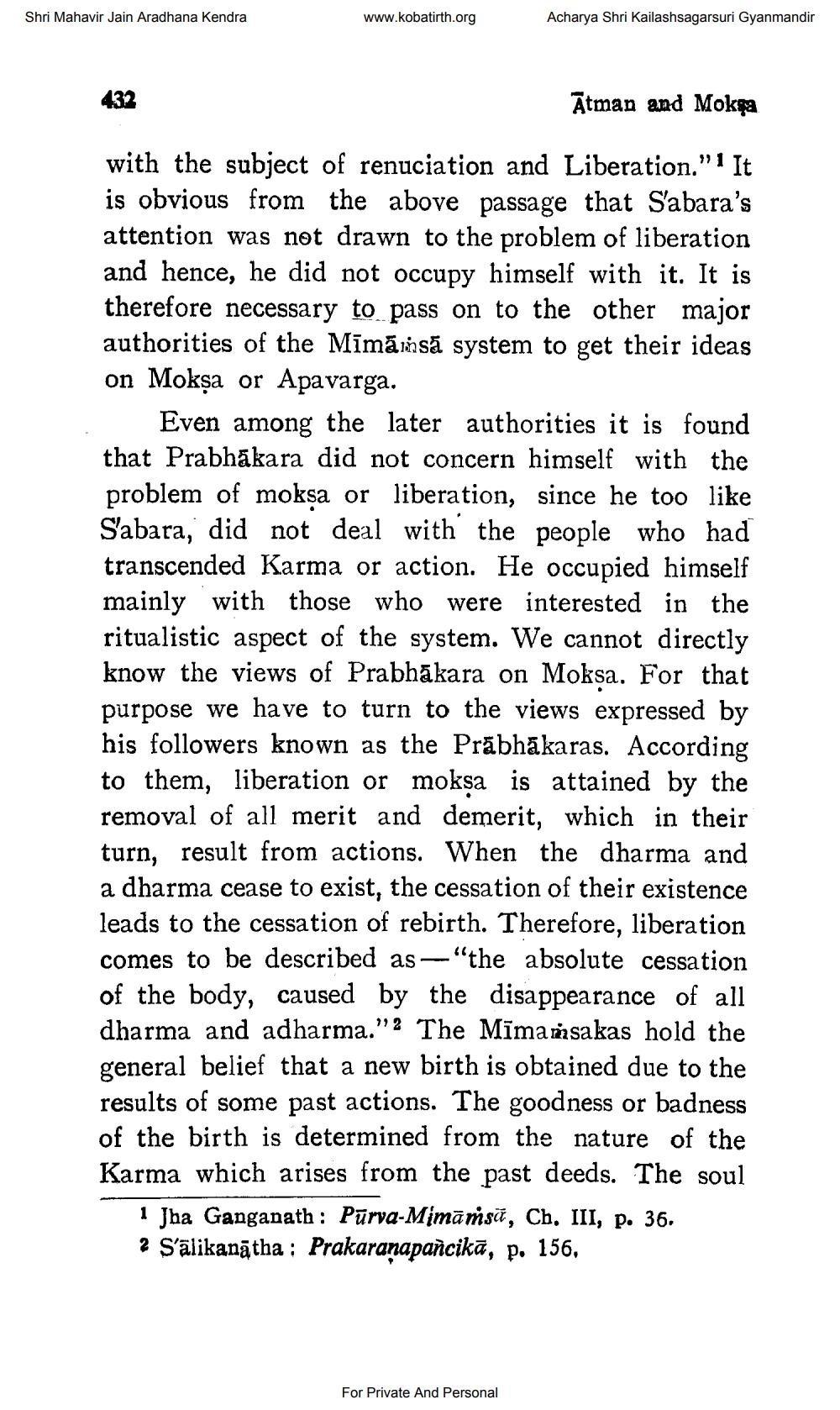________________
Shri Mahavir Jain Aradhana Kendra
www.kobatirth.org
Acharya Shri Kailashsagarsuri Gyanmandir
Ātman and Moka
with the subject of renuciation and Liberation."It is obvious from the above passage that Sabara's attention was not drawn to the problem of liberation and hence, he did not occupy himself with it. It is therefore necessary to pass on to the other major authorities of the Mīmāsā system to get their ideas on Moksa or Apavarga.
Even among the later authorities it is found that Prabhākara did not concern himself with the problem of moksa or liberation, since he too like Sabara, did not deal with the people who had transcended Karma or action. He occupied himself mainly with those who were interested in the ritualistic aspect of the system. We cannot directly know the views of Prabhākara on Moksa. For that purpose we have to turn to the views expressed by his followers known as the Prābhākaras. According to them, liberation or moksa is attained by the removal of all merit and demerit, which in their turn, result from actions. When the dharma and a dharma cease to exist, the cessation of their existence leads to the cessation of rebirth. Therefore, liberation comes to be described as "the absolute cessation of the body, caused by the disappearance of all dharma and adharma."2 The Mīmaņsakas hold the general belief that a new birth is obtained due to the results of some past actions. The goodness or badness of the birth is determined from the nature of the Karma which arises from the past deeds. The soul
1 Jha Ganganath : Pūrva-Mimāṁsā, Ch. III, p. 36. 2 S'alikanātha : Prakaranapancikā, p. 156,
For Private And Personal




